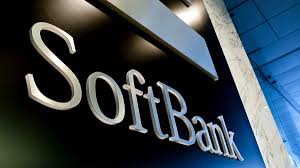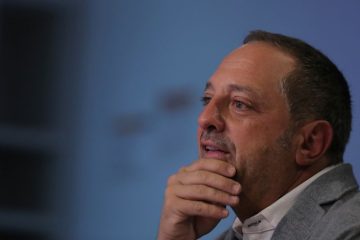This 2010 SoftBank Deck Explains Masayoshi Son’s Ruthless Ambition

This article originally ran in Term Sheet, Fortune’s newsletter about deals and dealmakers. Sign up here.
I’ve read quite a few articles recently about Masayoshi Son and his monster $ 100 billion Vision Fund. This morning, Reuters published an op-ed calling Son “a one-man bubble-maker.” The article argues that such extraordinary sums of capital flowing into the venture ecosystem are bound to inflate already-frothy tech valuations. Son is even talking about raising a second investment fund of some $ 200 billion, and said he expects “Vision Funds 2, 3, and 4” to be established every two or three years. In other words, he aims to invest in more than 1,000 companies over a decade.
But I’m willing to argue all this money is not bad. First, it helps to understand how Son sees the world. Over the weekend, I stumbled upon this SoftBank deck from June 2010. It outlines SoftBank’s 30-year vision, and it gives an interesting glimpse of Son’s ruthless ambitions.
For one, he has a 300-year view of SoftBank’s growth strategy. He says that artificial intelligence combined with data gathered by billions of sensors will bring on an “information revolution,” that will benefit people more than the 19th century Industrial Revolution. In May, SoftBank invested $ 300 million Guardant Health, a startup specializing in early cancer detection, and it bought a British semiconductor company called ARM. Son noted that sensor technology and innovation brought forth by these companies can enhance a doctor’s surgical skills and the data will prove invaluable.
“Those who rule chips will rule the entire world. Those who rule data will rule the entire world,” Son said. “That’s what people of the future will say.”
Here’s where this gets interesting. Son seems to be industry agnostic, betting on information and data instead. In the deck, there’s a slide that outlines the market cap of companies during the Industrial Revolution, including the Pennsylvania Railroad, U.S. Steel, and Standard Oil. The next frontier, he believes, is the data revolution. As people like Andrew Carnegie and John D. Rockefeller were able to drastically accelerate innovation by having a very large ownership over the inputs of the Industrial Revolution, it looks like Son is trying to do something similar. The difference being he’s betting on the notion that data is one of the most valuable digital resources of modern day. As Adam Lashinsky noted in this morning’s Data Sheet, a $ 200 billion bet on a single investment theme around Big Data could be entirely crazy … or brilliant.
Yes, SoftBank might be the cause for an IPO slump, and yes, Son might be a so-called “one-man bubble-maker,” but we’d be remiss not to look at what the Japanese tech behemoth’s infusion of cash is doing to move humanity forward in the long-term. It begs the question — even if all the criticism around SoftBank is accurate, will the 300-year outcome be a net positive for society?



